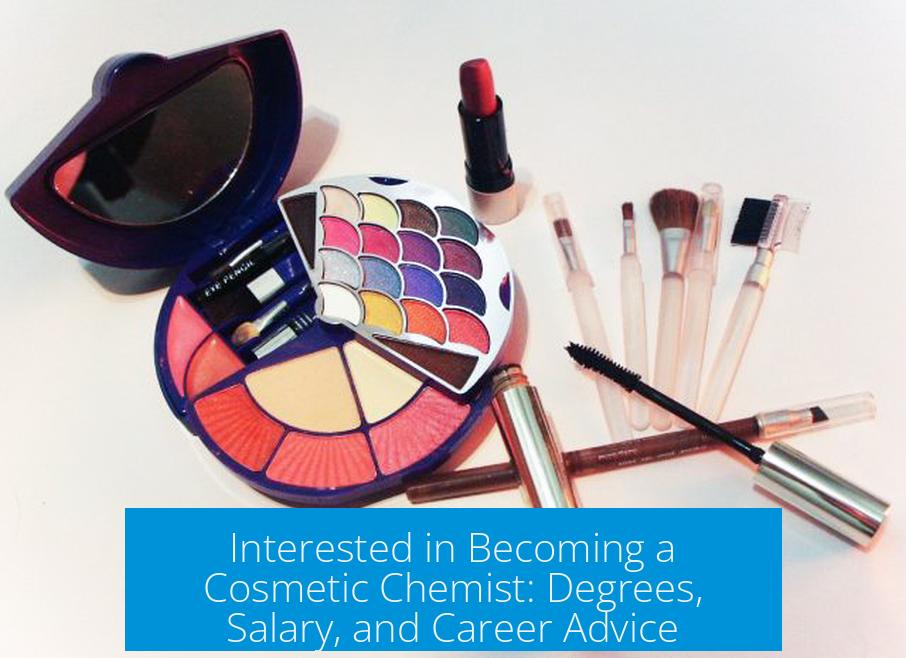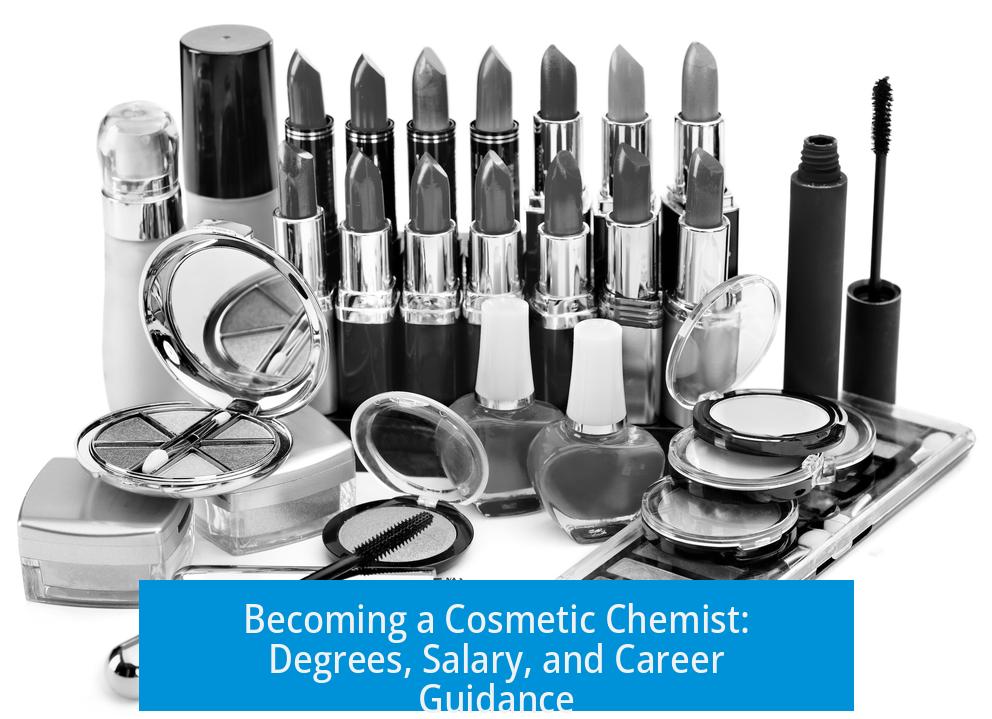Interested in Becoming a Cosmetic Chemist: Degrees, Salary, and Career Advice

Becoming a cosmetic chemist typically requires a chemistry or chemical engineering degree, with many employers preferring candidates who hold a master’s degree in cosmetic chemistry or a related field. Entry-level jobs are limited and often lower-paying, but career progression is possible through gaining experience and networking.
Educational Paths for Aspiring Cosmetic Chemists
Most cosmetic chemists start with a strong foundation in chemistry or chemical engineering. A bachelor’s degree in chemistry is often advised for those focusing on formulation chemistry. Chemical engineering can also lead to cosmetic roles, particularly in process development or manufacturing settings. Still, chemistry tends to better prepare one for product formulation roles.
Many industry professionals recommend pursuing a master’s degree, especially to enhance job prospects at larger companies. A master’s in cosmetic chemistry or chemical engineering with cosmetic-related coursework is valuable.
- Typical degree options:
- Chemistry Bachelor’s
- Chemical Engineering Bachelor’s
- Master’s in Cosmetic Chemistry or related
- MBA for leadership roles (optional)
Despite degree choices, formulation chemistry is rarely a major part of formal curricula. Students often learn formulation through on-the-job training. Supplementary modules in colloid sciences and surfactants provide useful background knowledge.
Employment Realities and Job Search Strategies
Entry-level cosmetic chemist jobs are scarce. Many graduates find more opportunities in lab technician roles that pay under $30,000 annually. Securing internships is highly competitive. Larger brands offer limited internships and receive many applications.
Networking plays a crucial role in gaining access to the industry. Connections help with access to graduate schemes at companies like Procter & Gamble and Unilever, which regularly recruit formulation chemists.
Summer placements during undergraduate studies improve chances of employment. Geographic hubs for cosmetic industry jobs include Chicago, New York, northern New Jersey, and parts of California such as Los Angeles.
Salary Expectations and Financial Considerations
| Experience Level | Approximate Salary |
|---|---|
| Entry-level lab technician | Below $30,000/year |
| Cosmetic chemist with 3 years’ experience | Around $80,000/year |
Advanced degrees generally lead to higher salaries. However, master’s programs in cosmetic chemistry can cost about $40,000 to $45,000 over two years, excluding living expenses. Given average cosmetic chemist salaries, loan repayment might be challenging.
Employers often require relevant work experience even for candidates with master’s degrees. Thus, practical experience remains essential to complement education.
Typical Roles and Career Development
New cosmetic chemists often start in technical management or lab technician positions. Transitioning to formulation chemist roles usually happens after obtaining relevant experience or specialized courses.
Formulation chemists develop and test new cosmetic products by experimenting with ingredient combinations. Early career roles may involve formulation work in adjacent industries such as paints, detergents, or pharmaceuticals, before moving exclusively to cosmetics.
Most formulation knowledge is developed on the job rather than through formal education. Developing skills independently, including DIY cosmetic formulation experiments, can improve readiness for industry roles.
Additional Industry Insights and Advice
- Focus on entering a company with strong training programs and advance internally to a formulation role.
- A master’s degree is usually expected for big companies; PhDs are less common and lengthy.
- Experience in related fields (food, household products, pharmaceuticals) often translates well to cosmetics formulation roles.
- Consider an MBA if interested in management positions later in one’s career.
- Patience and persistence are key; breaking into cosmetic chemistry can take years of networking and skill building.
Summary: Key Points to Consider
- A bachelor’s in chemistry or chemical engineering is the typical starting point.
- A master’s degree in cosmetic chemistry boosts hiring chances and salary potential.
- Formulation chemistry is learned mostly on the job; formal coursework is limited.
- Entry-level roles are few and often offer low pay; internships are competitive.
- Networking and internships during education improve job prospects significantly.
- Cosmetics jobs cluster in Chicago, New York, New Jersey, and California.
- Salary ranges from under $30K in entry lab roles up to $80K after several years.
- Financial investment in a master’s should be weighed against career goals and job market realities.





Leave a Comment